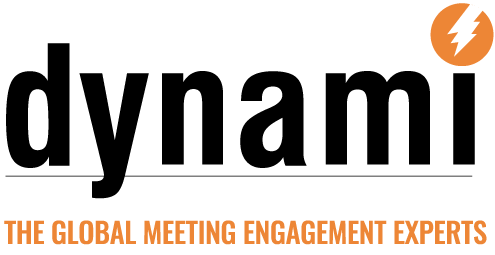Earlier this month, my colleague Julie Thompson-Whelan and I attended TEDxPeachtree (TED is an acronym for Technology, Entertainment and Design), an all-day showcase of some of Georgia’s most innovative thinkers and doers who’ve mastered the art of translating ideas, thoughts and words into action; all in an effort to make the world a better place. The event’s website says the roster of speakers “drive the future, help spark change, and celebrate human ingenuity”.
We were hosting a handful of established clients at the all-day event (some speakers live, some on video from other TEDx events). We enjoyed all 18 “TEDtalks” but three, in particular, stood out — one that spoke of gender inequality in venture capitalism, one who’s taking hands-on education to impressionable young children in under-privileged school districts, and one who’s making great strides in the effort to eradicate cancer. (There’s a kicker there but I’ll get to that later).
Like millions of people around the world, I enjoy these head-stretching sessions because they make you take pause, contemplate an alternative perspective, and hopefully gain a little more knowledge and insight into what makes our world tick (or not tick) and how we can advance an array of noble causes.
Consider these …
DANA KANZE, Gender Bias and Venture Financing
A Doctoral Fellow at Columbia Business School in New York, Kanze put forth the premise that gender bias clearly permeates investor behavior when “angel investors” field requests for funding. Whether intentional or conditional, the result is an inequality in how much venture capital is made available to males vs. equally qualified female entrepreneurs.
Numbers prove the bias is real. Female entrepreneurs receive only about 2% of all venture funding, despite owning a robust 38% of start-up businesses.
She and her team of researchers studied trends, analyzed success and funding rates of men vs. women entrepreneurs, created their own simulation with actual VCs, then probed deeper to see what was driving this bias. What they found was venture capitalists posed different types of questions to men than they did/do to women. Specifically, men fielded questions of promotional orientation (i.e., questions focused on growth, aspirations, achievements and ideals). Positive stuff, for sure.
Conversely, women were saddled with questions of prevention orientation (i.e., questions of safety, responsibility, retention, contingencies and vigilance). It was as if the assumption had already been made that men were far more likely to succeed because, well, they were men. Meanwhile, women were (intentionally or unintentionally) treated as less likely to succeed. And it shows in the percentages and levels of funding for men vs. women.
But Kanze offered this silver lining to an otherwise dark cloud. Savvy women entrepreneurs who manage the dialogue with VCs by responding to prevention-oriented questions with promotion-oriented answers were far more likely to secure funding, and in greater amounts. Thus, there is significant hope – but you’d better be crafty when answering these potential “trap” questions.
My “Take”: What I learned was that we must all listen, listen, listen carefully to every word being spoken because we can easily misunderstand or miscommunicate what we’re asking, hearing, being asked, or offering as a response.
Julie’s “Take”: I think it’s human nature to think of females as motherly and comforting so I can understand why some might be inclined to ask women questions related to safety, retention and the “what ifs”. Recognizing this bias – intentional or instinctive – gives women the opportunity to respond in a manner that demonstrates we deserve funding as much as anybody for the very reason that we do know how to retain, protect and grow in tandem.
Jason Martin, Thinking Outside the Box
Jason Martin is the kind of educator that makes you want to go back to school and sit at the front of the classroom. He’s that good!
An elementary school teacher who grew up in various New Jersey communities – some middle-income, some more rural and lower-income – Martin quickly realized the quality of education being offered significantly varied from location to location; some of it good and some of it sorely lacking. Reality is, having enough of the right teachers is a very expensive proposition and one that’s financially out of reach for many school systems.
Thus, the STE(A)M Truck concept was born.
Based on the educational acronym STEM – Science, Technology, Engineering and Math – Martin decided to hit the road, literally, and bring STEM-based curriculum to students. He converted an old blacksmithing truck into a mobile innovation lab and showcased it at a Georgia Tech-hosted fair, securing $100,000 in grants. That enabled him to buy a second, used truck and convert it to his first fully functional STE(A)M Truck which features hands-on training and teaching experiences for students, educators and artists hired by Community Guilds, Martin’s not-for-profit.
Martin’s STE(A)M Truck offers two programs – both lasting 20 days with a 1:5 teacher-student ratio and the mandate that 50% of the students be girls. In one program, the truck travels to a school’s parking lot and classes take place inside the truck and attached trailer. Subjects range from computer coding to electronics to art and mechanical design. In the second module, courses are taught in the actual school classrooms with a focus on incorporating STEM principles into teachers’ day-to-day instruction.
Martin’s program has already reached more than 500 students in 10 lower-income public schools. His goal is to secure additional grants, build his fleet of STE(A)M Trucks, and positively impact more than 4,000 Georgia students annually by 2019.
Far as I’m concerned, Jason gets an A++ for his efforts!
My “Take”: What I learned was that one person with a bold idea and determination can make a HUGE difference and trigger an educational revolution. Well played, Jason!
Julie’s “Take”: I was the “Lone Ranger” among my friends that took a computer course at the local vocational school (not really the type of school a cheerleader normally attends) during my senior year. To this day, I believe it gave me an advantage when computers in schools were a pretty new thing (let’s just ignore how old that makes me sound). But hands-on, focused, alternative course topics can be the difference between levels of success for kids who might not otherwise be exposed to it. Kudos to Jason for making this a reality!
Tejas Athni, Fighting Brain Cancer: Nature Could Hold the Key
Speaking of education …
Tejas Athni is a Macon, GA resident who knows how to juggle multiple tasks at once. He runs an online magazine, Publizette, teaches CPR and basic life-support as a certified instructor through his nonprofit CPR Education, and conducts plant-based cancer research.
Athni has always been fascinated by biomedical engineering and has been observing lab studies and conducting his own studies to determine if wetlands plants with anti-tumor properties – specifically the Bacopa monnieri, also known as the Herb of Grace or Indian Pennywort – can help ward off cancerous tumors and have positive effects on a human being’s central nervous system. His findings-to-date have been praised, recognized and rewarded with grant money to further fund his research. Heavy stuff, for sure. I know most of that would go over my head!
Oh … did I mention he’s a 17-year-old high school student at Stratford Academy? He is indeed.
My “Take”: What I learned was that we should all DREAM BIG and move beyond comfort zones. Each one of us can discover ways to make a difference! (My word, a high school kid!)
Julie’s “Take”: I know, deep in my soul, that the cures for so many diseases and disorders are already among us. We just haven’t put 2-and-2 together … YET. All it will take is for people like Tejas, who look beyond barriers like We’ve already tried that and That will never work, to push research and innovation to all-new levels until cures are found.
“Now playing left field …”
Those are but three of the many fascinating speakers showcased at TEDxPeachtree. If you can, make a point to attend next year’s event. I guarantee you, you’ll learn a lot and will consider it time well spent.
It also occurs to me that those of us in the meeting and event industry should give serious thought to incorporating mind-expanding speakers and topics when building our agendas. Yes, the traditional, rah-rah, keynote speakers serve an important purpose when rallying the troops but coming out of left field with a novel guest speaker/topic that makes you stop, think and consider may just be the catalyst for the next great innovation in whatever product or service your organization offers.
At the very least, expanding the mind makes us all better professionals, wives, husbands, Moms, Dads, friends, neighbors and teammates. Give it a shot!
CONCLUSION
Meeting and event professionals should take a cue from TEDx and give serious thought to incorporating mind-expanding guest speakers and novel topics when building agendas.
Cheers,





